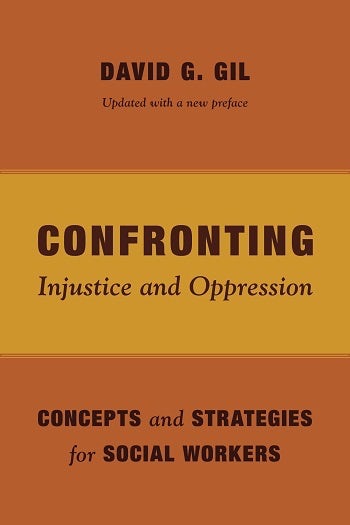More urgent than ever, David G. Gil's guiding text gives social workers the knowledge and confidence they need to change unjust realities. Clarifying the meaning, sources, and dynamics of injustice, exploitation, and oppression and certifying the place of the social worker in combating these conditions, Gil promotes social-change strategies rooted in the nonviolent philosophies of Mahatma Gandhi and Martin Luther King Jr.. He shares suggestions for transition policies intended to alleviate poverty, unemployment, and discrimination and examines modes of radical social work practice compatible with the UN Universal Declaration of Human Rights and President Roosevelt's proposed "Economic Bill of Rights." For this updated edition, Gil considers the factors driving two crucial developments since his volume's initial publication: the Middle East's Arab Spring and the U.S. Occupy Wall Street movement.
- Table of Contents
- Acknowledgments
- Preface to the 2013 Reissue
- Introduction: The Relevance of Injustice and Oppression for Social Work and Social Policy
- PART 1: THEORETICAL AND HISTORICAL PERSPECTIVES
- 1. Injustice and Oppression: Meaning, Links, and Alternatives
- 2. Injustice and Oppression: Origins, Evolution, Dynamics, and Consequences
- 3. Social Change Strategies to Overcome Injustice and Oppression
- 4. Dilemmas and Vicissitudes of Social Work
- PART 2: IMPLICATIONS FOR POLICY, PRACTICE, AND ORGANIZING
- 5. Transition Poicies Beyond Poverty, Unemployment, and Discrimination
- 6. Social-Change-Oriented "Radical" Practice
- Epilogue
- APPENDIX A: Franklin D. Roosevelt's Economic Bill of Rights
- APPENDIX B: The United Nations Universal Declaration of Human Rights
- APPENDIX C: Framework for Analysis and Development of Social Policies
- Works Cited

